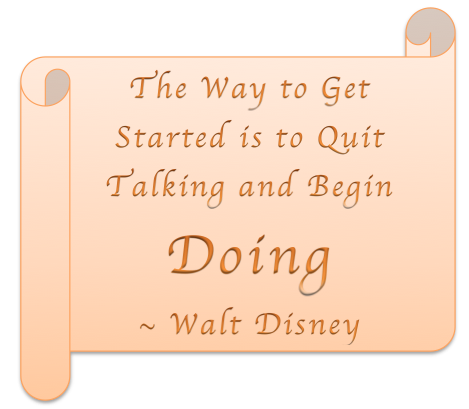|
As the treasurer and a presenter for the Provincial Intermediate Teacher's Association (PITA) I am frequently asked to write articles for their newsletter. In the most recent letter, I stated that I would post some videos about app smashing on my blog.
Here is a great article from Edudemic - 3 App Smash Video Projects to Challenge Your Students
 As May fades, with a background of political uncertainty surrounding teachers in BC, I have been reflecting on the fabulous final year I have had at Willoughby Elementary, and I am excited by the new adventures I will be facing in September. I have shed several real and metaphorical tears in the past weeks, as I have reflected on the last four years at my current school. I am leaving the comforts of my elementary school family, to walk through the doors of a brand new middle school in the fall. I am excited for the new challenge of teaching in a middle school and helping be part of a team that builds a new school. However, it is still hard to leave behind the community we have built at Willoughby.
Then there is my work with Bonny Kelly. Last year, we started this crazy idea called Inquiry Buddies, and dragged Barry along for the ride. You can read our year one reflections here. It was so amazing and wonderful to work through the peaks and valleys with two amazing colleagues. This year, Bonny and I continued the Inquiry Buddy journey, test-driving it with Grade 5, 6, and 7 students, and invited our colleague Brian Milner to join us. This year, students continued to work through the triumphs and challenges of pursuing yearlong passion based inquiries in groups, while being scaffolded by the three of us. The results: light creeping through the cracks once again, showing the value of having students pursue inquiry through groups. The need for students to genuinely collaborate, problem solve, communicate and critically think, while navigating through interpersonal problems to work towards an agreed upon goal. As another tear falls upon the keyboard, I know that these final tears are mixed with sadness, relief, joy, and hope. I am sad to leave my amazing collaborative partner Bonny. Until her and I worked together on Inquiry Buddies, I never truly understood the profound difference between cooperating with a colleague and collaborating with one. I am relieved that we once again have come out of the “Inquiry Chaos” to experience the “Inquiry Joy” felt by both students and teachers. Finally, I have hope for the future of Inquiry Buddies both at Willoughby and in the ways Bonny and I hope to connect my Grade 8 middle school students with her elementary students. We have had a will before, and we will definitely find a way again!  So May, as you fade into June and onward, amidst the chaos, I am not worried, because in all those cracks, there is light and it will eventually shine through! This year, during Inquiry Buddies, students are once again exploring a huge range of passion areas. One group have been researching Special Effects, and have taken particular interest in CGI. Another group has been exploring dance and acting. Yesterday, I invited an old friend of mine, while one of my brother's very good friends Jason Burkart in to talk with all three classes involved with Inquiry, not just those students studying Special Effects and Acting. He did an amazing job and the message was less about acting and more about hard work, perseverence, adding to your tool chest and being the best version of yourself. Several students in my class and the other class were excited by his story and his journey. The two boys who are exploring special effects for their inquiry took time to write a reflection on their experience today for our class blog.
Myself and the other teachers were impressed by how honest and sincere Jason was and how his message was so much more than what we had anticipated! Thanks Jason for being our expert for the day! When I reflect back on my 14 years of teaching, I often think to myself how rapidly the world has changed in such a short period of time. When I started teaching, you would have to find a DVD or VHS tape that fit the them of what you wanted and then would have to time the sections you wanted to show or just by default watch the whole thing. Now there are video clips at our finger tips, and often the sheer volume of what is available is the most overwhelming part. Here are four of the many videos that have had the greatest impact so far in my classroom this year.
This month I have been struggling trying to express my thoughts on culture in schools and in my classroom. I have been looking to find the right words to articulate my thoughts and ideas around culture in schools and in my own classroom. I start, I reread, I reflect, I delete, and then I start all over again! Now its not because I don’t have a lot to say, because anyone who knows me knows that at times I have too much to say. My thoughts can’t always keep up with what I am saying! Through all my attempts at my February Blogamonth post, one theme kept surfacing to the top, one common word – Relationships. At the end of the day, all that matters in my classroom is the relationship I have with the students on any given day throughout the year. When the relationship is strong, everything else seems to fall into place. However, after 14 years of teaching, I have begun to realize that you can know and do all the above things, but still not achieve a positive culture or a true relationship with students. I think, now and I may be wrong, but I do think that the biggest factor in creating positive relationships and a positive culture in your own classroom needs one last thing – a teacher genuinely being himself or herself. Over Christmas, my mother-in-law and I were chatting. She was trained as a K teacher in the 60’s in Australia. During our discussion, she mentioned that in Teacher College, it was stressed that you need to use your strengths your own teaching. Each person has different strengths, and that what sets you apart is when you use your strengths in a positive, engaging way. Now she has not taught elementary school since the 70’s, so she is not immersed in a 21Century classroom, yet her words are so relevant and so important. Amidst all the changes in curriculum, perspective, and as the pendulum swings so to speak, those teachers who maintain a positive learning culture in their room, I believe, stay true to this idea. Teach as yourself, not as others expect you to. Two years ago, my job share partner and I had a 23-year-old male student teacher. He was a fantastic, energetic guy with a lot of potential. I remember at the half way point saying to him that he needed to stop teaching like a middle aged woman with two kids and start being himself. He didn’t need to be us, what he needed to do was bring his own personality to his teaching. We encouraged him to bring in his guitar, to sing for the kids, to be his 23 year old man self! The relationship and mutual respect between him and the students grew from this point on. My point being that he had checked off all the necessary relationship building activities he was given on a checklist from university, but had not yet done it as his own self. I have job shared for the past 3 years working 3 days and giving 2 days to my job share partner. People ask how do you maintain the same positive environment from week to week, when you are both so different? The bottom line is that we both build relationships, but we build them as our own selves. The relationship I have with Student A is different than the one she does, because we are different people.
I am tempted to once again reread this, reflect and probably delete most of it, but this time, I am just going to publish live and leave this rambling set of thoughts as is. Classroom culture is so uniquely our own, and if it is positive and learning is taking place, then I think that the best version of you must be the person teaching each day!
Other questions also arise, not initially connected to their passion area, but instead building off of it. For example, some students want to now create a website to communicate their learning. They are invigorated by this new learning and are excited to add to their experience.
All weekend I have been thinking about parts of that conversation and how the creating process of Inquiry Buddies connects to my own teaching. As a teacher I often think to myself “this lesson isn’t working” or “this class doesn’t understand ____________.” I ponder it, I think about it and I try to come up with a plan. Sometimes, I do and other times I don’t. I usually come up with the plan quickest when I start 'doing' something new. Through the research, learning and reflective journey I can then better create a lesson that meets their needs. The excitement of finding a new approach or of tailoring a lesson to a new group is what drives me. My passion for learning spurs me on to new problem solving and learning solutions with each new class. It is easy to teach the same lesson the same way every year. It is equally easy to complain when the lesson fails with this year’s group when it worked wonderfully the year before. It is even easier to blame it on something other than the lesson plan or project idea. It is much harder to reflect on why it didn’t work this year and then create a plan to fix it. Each group of students is unique and different; thus requiring different approaches and ideas to help engage them. Through my own teacher inquiry process I am realizing that I am mirroring the learning journey of students when they participate in inquiry based activities. What drives me as a teacher? What do I wonder about? What is driving my interests of passion? Participating in teacher inquiry allows me to explore what I want to do professionally to grow and allows me to explore my passions in education.
Last year, Bonny and I participated in a teacher inquiry project thanks to a grant from the BCTF, which was matched by our local, the LTA, and our school district #35. This year, we were fortunate enough to secure another PQT (Program for Quality Teaching) grant through the BCTF which has also been matched by our local LTA (Langley Teacher's Association) and SD35. Just before Christmas, we excitedly attended our first session for this year with our fabulous facilitator Henry Lee. By having a second year to work on teacher inquiry, we are able to have more opportunities to reflect on our own teaching practice and grow as a community of learners. Having time to collaborate with other teachers and have our own Inquiry Buddies is so valuable to helping us support our students and improve our teaching practices. This year, Bonny and are continuing to pursue inquiry with our students using Inquiry Buddies as one of the ways that we ignite learning in our classrooms. In addition, I am excited to have time to think about and collaborate with others around my new question. How do I authentically utilize technology to engage students in ways that were not previously possible? The planning stages have started and we are excited for what is to come in the next few months! One of the first questions that most people ask Bonny and I about Inquiry Buddies is how we assess inquiry? Basically how do we mark it? Now this is a very interesting question, because I don't believe that I need to assign a final mark to the inquiry buddy project. My belief is that once we do, the whole process is tainted, basically defeating the reason why we wanted to do this style of inquiry with them. It unsettles a lot of people, and I think might even make them resistant to trying inquiry buddies with their students. Here is the greater picture, what teachers are really asking us is how do we put a summative assessment on all of the work and efforts the students have done. Instead, they should be asking how are we assessing for learning throughout the process.
The purpose of inquiry buddies is to help them utilize and refine 21 Century learning skills while igniting and sustaining a love of learning. "Assessment for learning is the key to creating life long learners" (Rick Stiggins). Inquiry buddies sets up a year of dialogue between teacher and student where they are closely monitored along the way. This way, we make the students in charge of their learning, not the teacher. We, the teachers, then become facilitators of where their learning goes, not dictators. In his presentation, Rick Wormeli stated, "grades get in the way of learning. Descriptive feedback is what we need to learn." This is how we assess Inquiry Buddies. We constantly provided descriptive, honest feedback to help guide students to connecting at a deeper level with the content.
Rick Wormeli and Rick Stiggins both helped me to further articulate to others why no final mark should be placed on the Inquiry Buddy process. Instead, Inquiry Buddies needs to be thought of as a place where they are practicing skills, while receiving constant descriptive feedback to support their learning. I can leave the summative assessment for elsewhere, knowing that if we use Inquiry Buddies as a place to formatively assess, the skills they develop will transfer into other areas.
To grow as an educator, you need to be a student. I have always loved professional development opportunities, and for many years, I have wanted to go to a large conference, the kind where the sheer volume of professional development available is mind-blowing. Now, I finally have and I sit here writing in a state of overload, reflecting on all I have tried to absorb, reflecting on my teaching practice and energized by my learning from the three-day AMLE (Association of Middle LEvel Educators) conference in Minneapolis. I jumped on the opportunity ½ a year ago to travel and learn with other educators from the Langley School District. Finally, an opportunity to attend a conference of magnitude, with other motivated excited Langley educators. Being around so many educators from across North America was incredible, some of the most valuable professional developing arising out of the conversations with strangers and colleagues before and after workshops.
Before I left Langley, I was uncertain of the path my learning would take throughout the three days. The sheer number of presenters and topics was overwhelming! Assessment, Culture, Teaming, Reading, Technology, Inquiry – where to go and what to do! My passions are technology, inquiry and student engagement so I tried to digest as much as possible. In addition I was drawn to the opportunity to see some ‘big’ name draws in education at the conference including Ruby Payne, Rick Stiggins, Rick Wormeli, Jack Berkemeyer and Kim Campbell. No matter the presenter, one of the biggest themes was that educators need the right mindset in all we do for our students. Modern educators need to think with modern pedagogy when planning educational experiences for kids. Neil Stephenson at our last Engaging the Digital learning presentation said “It’s tough to teach in an inquiry-based classroom if you don’t live an inquiry-based life.” Presenter after presenter at the conference stressed the need to see everything you do through the right lens. Rick Wormeli stated loud and clear “MINDSET MATTERS”! You don’t need fancy tools or gadgets, 21 Century learning requires us to shift how we help students learn and how we assess their knowledge and learning. We cannot teach and assess with a “Gotcha” approach (Wormeli). Students are not parrots, they are beings that are capable of creating critical, deep, thoughtful work. Facilitators of learning get results, not dictators of learning! Those teachers not willing to look through a new lens will be left behind. Inquiry, essential questions, and meaningful, relevant assessment – these need to be done to help students achieve their potential. In the midst of all of my learning, one big shift occurred, something, to be quite honest I did not believe possible – I tweeted and I tweeted a lot! I have had a twitter account for 2 years; I have been a ‘lurker’, but I have been reluctant / hesitant to tweet out. It was less about whether I had any thing of value to say but more of a mindset that “if you tweet in the forest will anyone hear”. Something happened, though, during my second session as I was following the twitter feed for the conference. I felt this need to share ideas in the moment, to document those words and phrases that resonated with me; ultimately, to interact with those who were also there. It was exciting to join a secondary conversation about the presenter, to engage in the presentation at another level. I started to see value in that moments and I thought to myself, ‘the tweet is not echoing in the forest,’ instead it is being added to the other tweets creating a dialogue of its own. In addition, I began to get reactions from colleagues at the conference who were not at the same session, and before you know it, people at home, learning along side of me, not there, but being exposed so the sound bites and kernels of knowledge that I was able to share. I will give credit at this point to Shawn Davids @sdavids51 and Sean Oliver @seano3ca for playing a role in helping me feel that there was someone in the next forest will hear if I tweet. I am not sure if I will continue to on a daily or weekly basis, but I have now caught a bit of the twitter bug! The conference setting made it a safe, comfortable place to begin. Being part of a greater conversation enriched my understanding of the topics and allowed me to reflect in the moment and add to the discussion. Thank you to all the educators from Langley that I went with and to all those I interacted with on twitter! An extra thank you to Tim Everson for organizing this wonderful opportunity for us! |
Inquiry BuddiesNadine Keyworth, one of the co-founders of Inquiry Buddies, blogs here about her thoughts on Inquiry Buddies, Teacher Inquiry and Life in the Classroom! Archives
September 2014
Categories
All
|









 RSS Feed
RSS Feed
